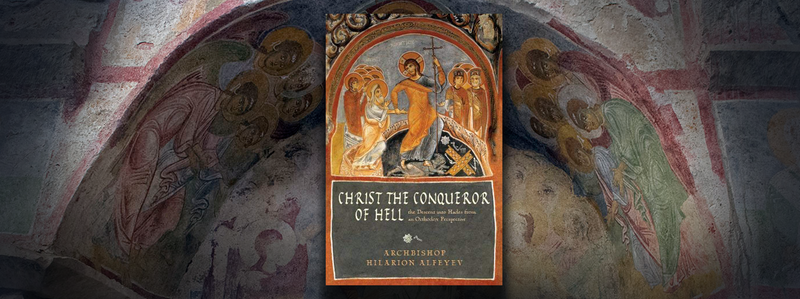Christ the Conqueror of Hell
Posted by Raphael Fiedler on 13th Oct 2020
Though not encyclical, such as other tomes (The Departure of the Soul jumps to mind), Christ the Conqueror of Hell is a fantastic insight into the deep liturgical, dogmatic, and poetic roots of our Orthodox understanding of the harrowing of Hades. At times, Metropolitan Hilarion skirts the edges of a few enticing rabbit holes of history and the saints, but always comes back to the main focus; that is, arming the reader with the proper context for studying the works cited. Let's take a brief look at the four major sections of the book.
Part one focuses on the earliest sources, those being the New Testament, early poetry, and apocryphal literature. It’s worth noting the great extent of apocryphal sources explored, though Metropolitan Hilarion is keen to avoid gnostic sources as a point of dogmatic teaching, which is a great comfort. Special attention is paid to the Greek and Syriac traditions in which the Paschal faith is firmly set by the 2nd Century with the Paschal troparion as we know it already in regular use.
The second section draws more from the patristic tradition, and shows the natural evolution of the poetic sources, as well as the rise of Origen. To refute him, the anti-heretical work of Irenaeus and the extensive works of St Augustine, as well as “The Suffering of Christ” by Gregory Nazianzen, are also explored, as they present the descent as a redemptive fact.
The most exciting part of the book (in my humble opinion) focuses entirely on the works of Saint Ephrem the Syrian and Saint Romanos the melodist. Of great interest here is the importance of St Ephrem's ability to marry the Syriac poetic tradition to the Byzantine liturgical tradition, along with the impact his work has had on his contemporaries; most notably of which is St Romanos. So, in the life and work of St Romanos, we then are shown his amazing kontakia, and the evolution of our modern hymnography from that work. As a bonus, this section also collects a substantial amount of the latter's work, which is difficult to find in English, outside of out-of-print works and scholarly editions.
Finally, part four is almost entirely compiled of our current liturgical hymns used as an example and culmination of two thousand years of proclaiming Christ's triumph over sin and the grave, even to the harrowing of Hades.
Though the book does present the reader with some insight into our Orthodox beliefs about the title subject, its focus is plainly the poetic and liturgical expressions of those beliefs. As a lover of our Church's hymns, that suits me just fine. And, seeing as Metropolitan Hilarion is a composer, among other things, it's probably safe to assume this was intentional all along. He's my kind of nerd.
Review by Raphael Fiedler of Orthodox Review




